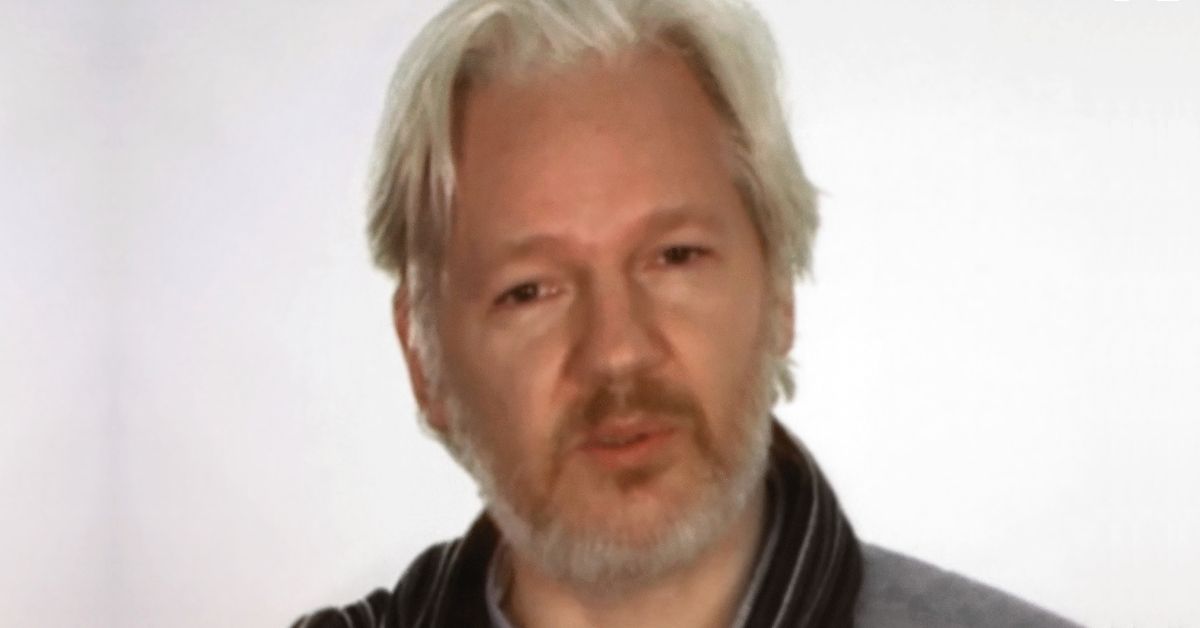The Betrayal of Julian Assange
The indictment has collided with domestic US politics in a way that does not bode well for Mr. Assange nor for freedom of the press.

With the indictment against Julian Assange now unsealed, the repudiation of asylum by the Ecuadoran government and subsequent arrest by the UK, the Wikileaks drama is in the news once again. In the rush to comment on the particulars of the case, it would be good to remember the context in which the acts Assange is alleged to have committed took place.
In 2003 the United States had committed itself to the stupidest military adventure in its history, an unprovoked attack on a country that had the misfortune of having “our” oil beneath its territory. It was an illegal war, predicated on outright lies, a war of aggression and greed. Both US political parties supported it. The media’s complicity and bellicose boosterism brought the public along for the ride. In the end, roughly 5,000 Americans and 500,000 Iraqis were killed and countless more wounded. As if the war and subsequent occupation were not bad enough, they would soon lead to the rise of ISIS, the crisis in Syria, and of course, more death and destruction.
The bloody conflict had been dragging on 7 years when Chelsea (then Bradley) Manning contacted Wikileaks and offered to provide classified information about what was really happening in Iraq (and Afghanistan). Deeply troubled by the disparity between the reality of the war in Iraq and the sanitized version disseminated in American media, she came to believe it was her duty to report what was really happening.
I believe that the current limits on press freedom and excessive government secrecy make it impossible for Americans to grasp fully what is happening in the wars we finance.
— Chelsea Manning, June 14, 2014
It was the moral position to oppose that war, and it was a moral act to expose its obscenity. The data dumps included instances of US military and governmental lying, the killing of journalists and children, heretofore secret body counts, collaboration with repressive regimes, prisoner abuse at Guantanamo, epic hypocrisy, and more. In short, it was news— especially to a public that had been credulously accepting the government’s assertions that everything was going well.
Obviously what Chelsea Manning did was illegal, and she was court-martialed and spent seven years in prison for it. But going after Assange for publishing the information is like killing the messenger because you don’t like the message.
Let’s make no mistake here, the government now seeks to punish Julian Assange for his role in exposing the truth. But beyond being merely vindictive, the Trump administration is sending a message – a threat – to any publisher who would dare expose anything the government doesn’t want known in the future. It is an attack on a free press. Its importance extends well beyond this particular case. That’s why the Assange indictment and extradition must be forcefully resisted.
A quick look at the Assange indictment shows prosecutors straining to construct a case from scant evidence. Aside from casting normal journalistic behavior as evidence of a conspiracy, the central accusation is that the two entered into a“password-cracking agreement.” This is something that had been public knowledge since 2011. However, as the indictment acknowledges, the alleged agreement did nothing to further the acquisition of documents. Despite Manning having provided the password hash, Assange never cracked it. As far as we know, if Manning had not leaked to Wikileaks she would have sent the classified material to the New York Times, or any of the other publishers who eventually disseminated it to the public.
In 2013 the Obama DOJ decided not to prosecute Assange:
Justice officials said they looked hard at Assange but realized that they have what they described as a “New York Times problem.” If the Justice Department indicted Assange, it would also have to prosecute the New York Times and other news organizations and writers who published classified material, including The Washington Post and Britain’s Guardian newspaper, according to the officials, who spoke on the condition of anonymity to discuss internal deliberations.
— Washington Post, November 25, 2013
The indictment seeks to sidestep the First Amendment problems by limiting the charge to computer hacking, which carries a maximum penalty of 5 years. Considering Assange has already spent 7 years confined in the Ecuadorian embassy, even if he were guilty, isn’t this a case of “time served”? More likely, once Assange find himself in US custody prosecutors intend to bring more serious charges.
Unfortunately for Mr. Assange, his indictment has collided with domestic US politics. Many of Hillary Clinton’s crestfallen supporters are still smarting from their candidate’s loss, and in their bewilderment they cast about for the reason why. They can’t accept the pedestrian reality that more people in the right states voted for her opponent. Instead, they recite a litany of counter-factual narratives and conspiracy theories that are supposed to be explanatory (and more importantly, exculpatory). Chief among those has been the idea that “the Russians” are to blame. The allegations of Trump’s collusion with Russia that were the subject of Robert Mueller’s investigation deserve their own treatment. But as far as blaming Wikileaks for Trump’s election because they published the hacked DNC, DCCC and Podesta emails— sorry, but no.
Assange’s role came down to publishing information that was true. If he had not published it, it would surely have been published somewhere else. The Clinton crowd’s fury with Assange is misplaced. It is, once again, killing the messenger because you don’t like the message. With the hacked emails, it was the content that was the real issue, not the delivery.
It’s not even that individuals expressed opinions about candidate Clinton, it’s that the truth of what they, themselves, were actually saying and doing was captured in a trove of cryptographically undeniable emails. Anyone could read them for themselves and come to their own conclusions without the media’s interpretation. Debbie Wasserman Schultz and other top officials at the DNC were dismissed when the extent of their manipulations was revealed.
If you’re upset with the revelation of the truth, it’s like being upset with reality. You can be sure that reality doesn’t care whether you are upset or not. You can fight reality all you want and it will still win. But only 100% of the time.
The truth is incontrovertible. Logic may attack it, ignorance may deride it, but in the end, there it is.
— Winston Churchill
To put a finer point on it, elevating one’s misplaced pique with Wikileaks for publishing the DNC emails, or one’s personal disdain for Assange the individual, over the principle of freedom of the press is dangerously self-indulgent. The principle at stake is that people have a right to know – and the press has the right and the responsibility to publish – factual information, whether it be about the conduct of a war or of a political campaign. That principle is essential to a democracy, and is a foundational tenet of the US Constitution.
Since truth and reason have maintained their ground against false opinions in league with false facts, the press confined to truth needs no other legal restraint. The public judgment will correct false reasonings and opinions on a full hearing of all parties, and no other definite line can be drawn between the inestimable liberty of the press and its demoralizing licentiousness. If there be still improprieties which this rule would not restrain, its supplement must be sought in the censorship of public opinion.
—Thomas Jefferson: 2nd Inaugural Address, 1805. ME 3:381
The nature of a principle is that you don’t get to apply it selectively. You can’t make an exception for when the truth happens to expose your own corruption. I’m embarrassed for the people making such a patently self-serving argument. It’s absurd that we’ve ended up here.
Following the lead of establishment Democrats and their backscratchers in the media, people who really should know better now find themselves aligned with Mike Pompeo and Donald Trump, abetting their attack on press freedom or tacitly supporting it. Theirs is a perilous hypocrisy and it will not end well for them. The question is whether they will end up dragging the rest of us down with them.
In conclusion, we should mention the outrageous betrayal by Ecuador’s leader, Lenín Moreno. We’re really talking about two Ecuadors here, since between the time Assange was granted asylum and the time he was handed over to British police, the government had changed. Moreno’s predecessor, Rafael Correa, who granted Assange asylum in the embassy has this to say:
The greatest traitor in Ecuadorian and Latin American history, Lenin Moreno, allowed the British police to enter our embassy in London to arrest Assange. Moreno is a corrupt man, but what he has done is a crime that humanity will never forget.
— Rafael Correa, April 11, 2019
That pretty much sums it up. One has to imagine that Moreno’s $4.2 billion financing deal with the IMF and $6 billion from the World Bank and other institutions, announced in February, had something to do with it.
The next move in this drama will be from the lickspittle UK judicial system. Will Assange be able to fight extradition? I fear things do not look good.
Photo credit: By Video stream produced by Chaos Computer Club
